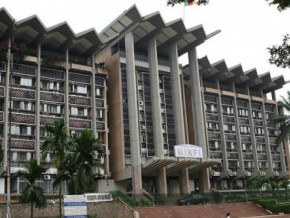
Moody's maintains tough stance on Cameroon despite debt stability predictions

(Business in Cameroon) - U.S. rating agency Moody's has maintained a strict (Caa) rating for Cameroon, even though the country's debt is projected to remain stable until 2027. The agency cites insufficient budgetary performance and emphasizes the need for political stability, especially in a global context where democracies are under significant strain.
In its recent analysis, Moody's decision to keep Cameroon's rating unchanged stems from political risks, particularly regarding the transition of power. The agency noted that apart from weak public financial management, the rating reflects the risks of political destabilization following the lack of a credible plan for presidential succession. The agency also highlighted two incidents of delayed payments to the European Investment Bank (EIB) in 2023, occurring one and five days late in August and September, respectively. Although these delays were minor (less than 0.003% of GDP), Moody's analysts believe they indicate vulnerabilities in the country's budget management.
Despite signs of fiscal responsibility, Cameroon's debt-to-GDP ratio is expected not to exceed 44% by 2027. The average maturity of its foreign debt stands at seven years, and debt service is anticipated to account for only 4.8% of revenues on average during the period. Noteworthy efforts include a 15% increase in fuel prices, which has contributed to inflation.
The government's decision to grant a 5% salary increase to civil servants and other public sector workers, while cutting some taxes to support the economy, further strains a public budget already considered modest compared to that of Côte d'Ivoire, which has a similar population profile.
Despite these measures and careful debt management, Moody's continues to rate the country in the Caa category, raising questions as more risky countries receive better ratings. For now, Cameroonian authorities do not plan to return to international markets after borrowing €200 million from Afreximbank.
This pessimistic stance has affected Cameroon's current Eurobonds. Investor yield expectations have slightly increased, indicating that the agency's concerns have been noted. This is particularly evident with the Eurobond issued in November 2015, which has $102 million remaining to be repaid by November 2025, according to data reviewed by Ecofin Agency.
Mags frontpage
- Most read 7 days
- shared 1 month
- read 1 month






























